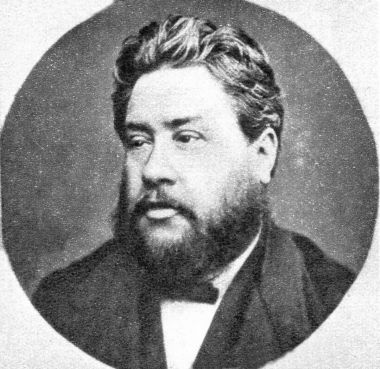Lost CH Spurgeon sermon published for the first time

The notes for an early sermon preached by CH Spurgeon have been published online more than 150 years after they were written.
The sermon entitled 'The Thief's Prayer' was preached at Spurgeon's first church, Waterbeach in Cambridgeshire, when he was only 18. It is based on Luke 23:42, "And he said unto Jesus, 'Lord, remember me when thou comest into thy kingdom'" (KJV).
It has three points – the prayer is an indication of real conversion, it shows the greatness of the thief's faith, and it is a model for all conversions. It concludes: "Let the thief's prayer help us in [the] judging of ourselves and the sick. Let his faith shame our unbelief."
The text is one of several in notebooks found by Dr Christian George, Assistant Professor of Historical Theology and Curator of the CH Spurgeon Center for Biblical Preaching at Midwestern Baptist Theological Seminary, at Spurgeon's College in London. Spurgeon had originally intended to publish them but was too busy to prepare them for the press. They will be published in the spring of 2017 as The Lost Sermons of CH Spurgeon by B&H Academic.
George told Brandon Smith the sermons showed how Spurgeon's preaching style had developed over the years. "To really understand Spurgeon, you have to know where he came from, who he was reading, and how his sermon-craft developed," he said. "It has been so fascinating to watch the seeds that were planted in Cambridge fully blossom in his pastorate in London."
He added that the notes were not complete sermon texts, describing them as "raw and messy". "His phrases are erratic, inconsistent, and in places hardly legible. His punctuation provides visual cues more than grammatical aids," he said.
George spoke of the extraordinary achievements of Spurgeon. "Every week, Spurgeon wrote nearly 500 letters, digested six meaty books, preached up to 10 times, and constantly switched hats among pastor, president, editor, author, and evangelist," he said. But he also noted his trials and weaknesses: "One psychiatrist has noted that if he lived today, Spurgeon would be diagnosed with bipolar disorder and treated with medicine. He was constantly plagued by disease on the one hand and depression on the other, always oscillating between gout and doubt."
Spurgeon today, he said, could be a unifying figure: "Wherever I go, I am always met by those who claim Spurgeon, regardless of their theological stripe or tribe. I believe this project can remind us that our enemies are bigger than our differences."











